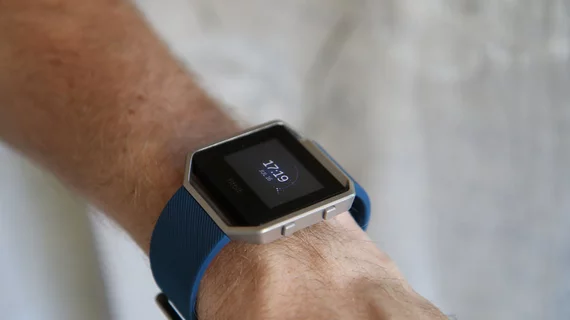Fitbit, other wearable trackers help predict how patients will react to chemo
Wearable fitness trackers aren’t just for the gym anymore, the Guardian reported this month—according to a group of California researchers, the devices can track health information indicative of how cancer patients will react to chemotherapy.
Statistics from the trackers, typically reported via a smartphone app, can also help patients recognize some of the side effects of chemo and suggest when medical intervention might be beneficial, researcher Jorge Nieva, of the University of Southern California, told the Guardian.
“What we’ve learned is that we can get an objective metric of patient performance with the use of these modern technological tools,” he said. “We’ve all got our home sprinkler systems and our thermostats, all connected to the internet—there’s no reason that our patients shouldn’t also be connected to the internet and have the potential to have monitoring and smart interventions based on their performance and functioning.”
Fitness trackers produced by companies like Fitbit, Garmin, Xiaomi and Misfit have been heralded in recent years as good indicators of quality of life in cancer patients. As of the end of 2015, the Guardian reported, nearly 300 clinical trials had used fitness trackers to collect personal data.
For his research, Nieva and his team used a Microsoft tracker to capture data from 41 patients with solid tumors undergoing “difficult” courses of chemo. Over two months, the researchers found that patients who worked in small bouts of activity—like getting up, cooking a meal or cleaning—were significantly less likely to visit the hospital as a result of chemotherapy side effects.
“We found that those patients had a much lower risk of unexpected adverse events, hospitalizations, ER visits,” Nieva said.
Read the Guardian’s full report below:

